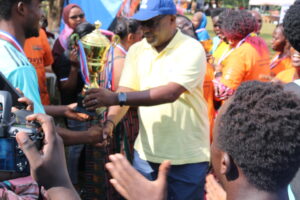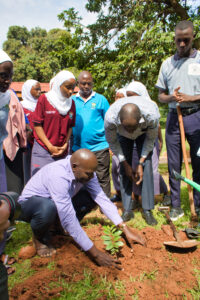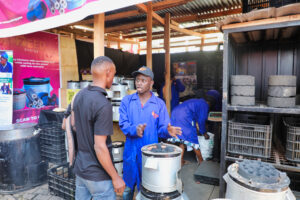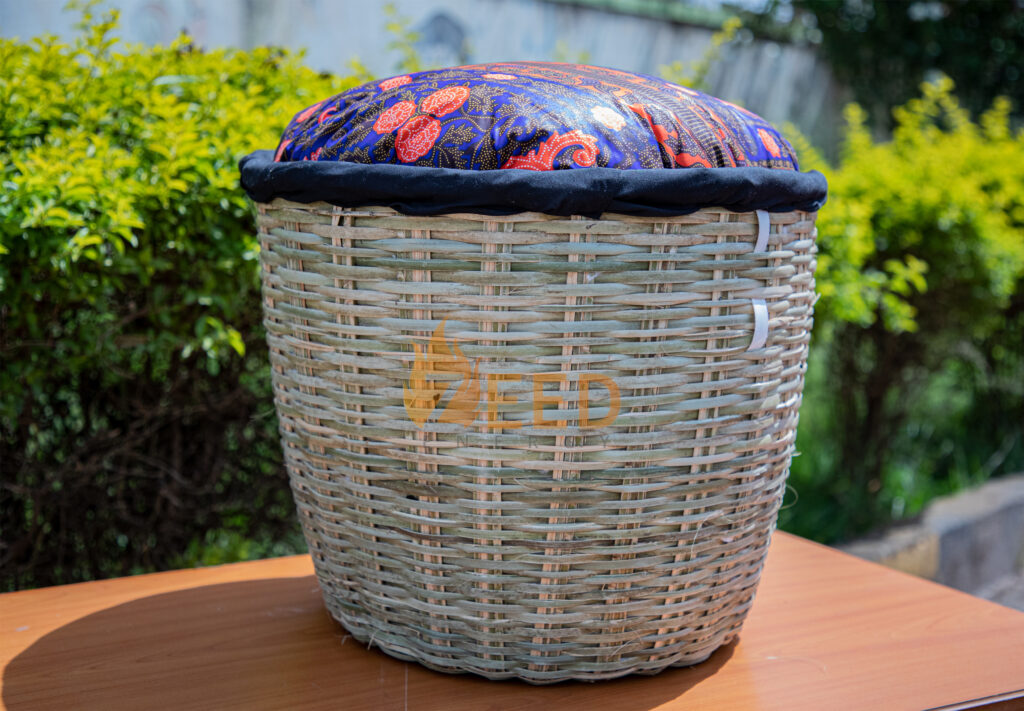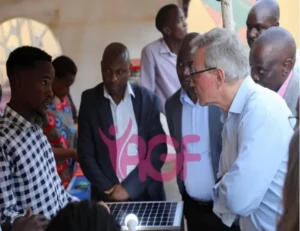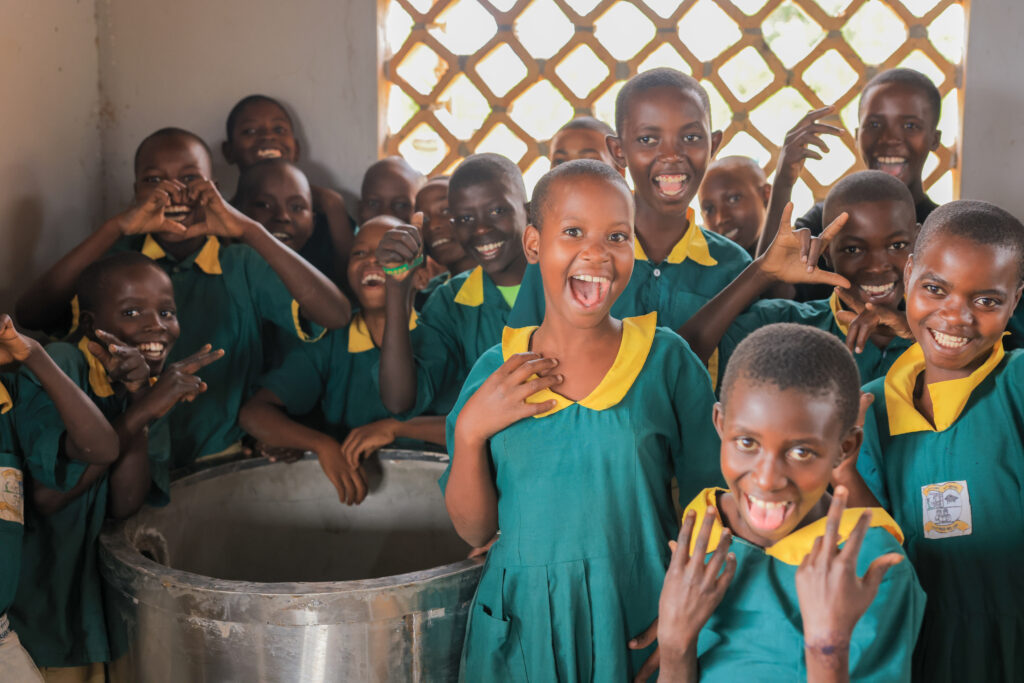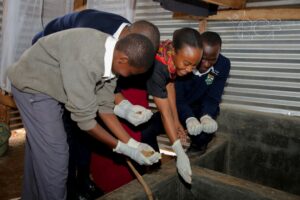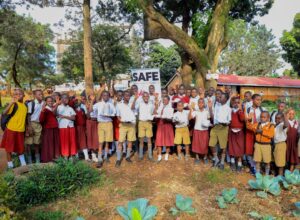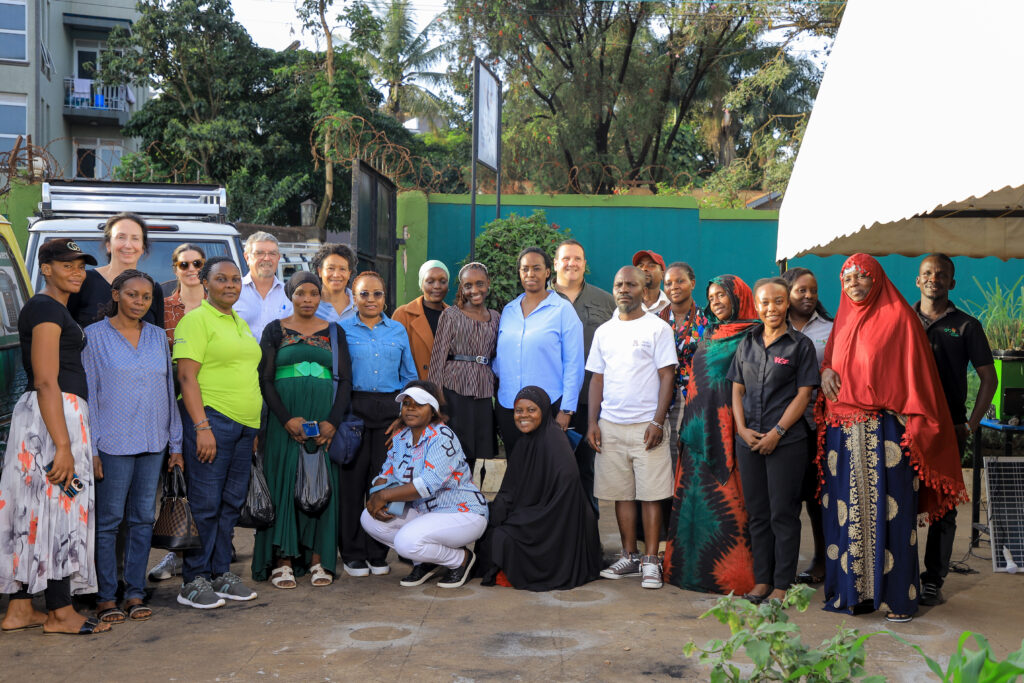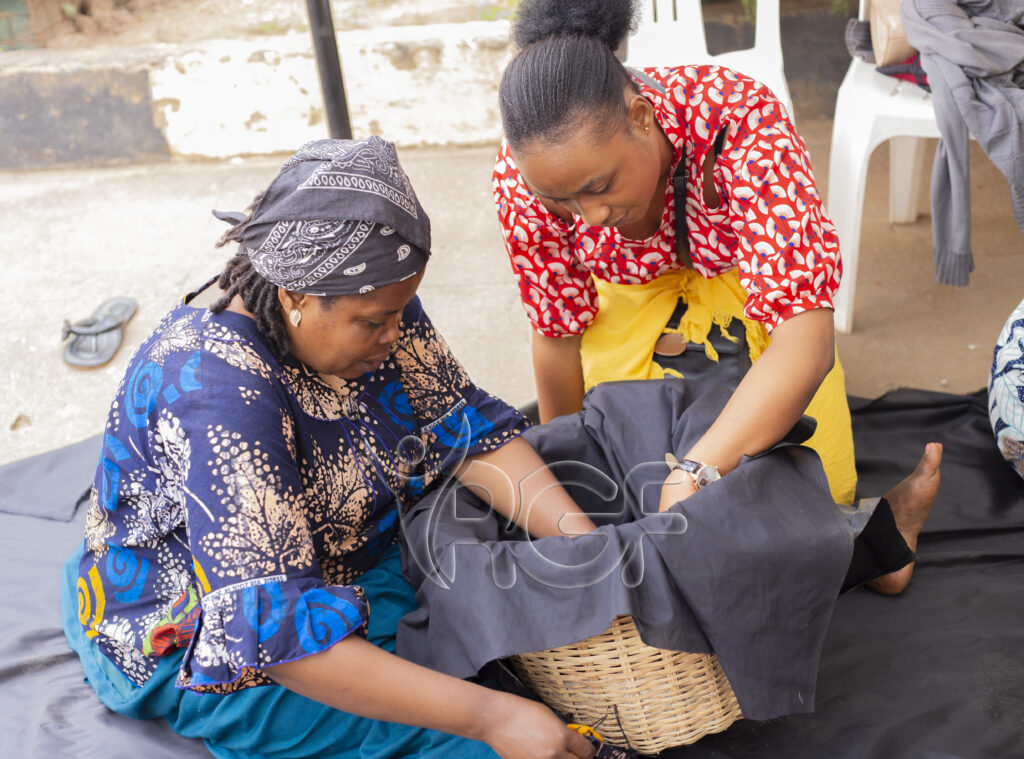Raising Gabdho Foundation (RGF) is proud to announce a significant milestone today.
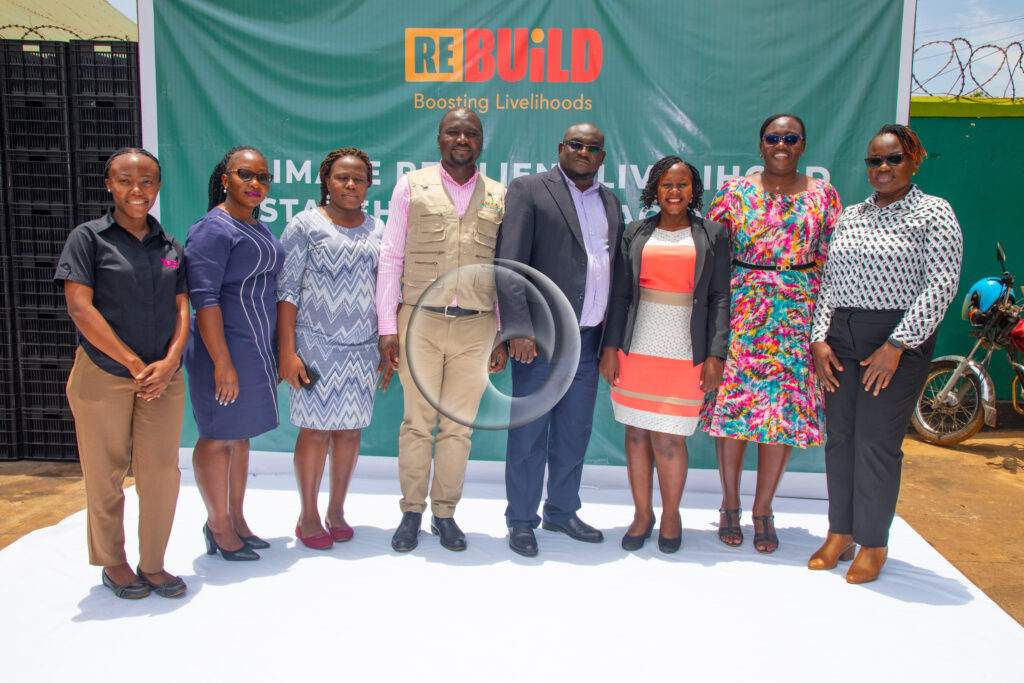
We are officially launching the climate resilience scale-up year, under the Re:Build service pillar, in collaboration with the IRC and other esteemed partners. This initiative is part of the Rebuild program, a groundbreaking five-year project generously funded by the IKEA Foundation, aimed at fostering climate-resilient livelihoods.
After carefully analyzing the lessons learned from previous implementations, we have strategically narrowed our focus to four key areas. These areas are designed to scale up proven successful interventions that promote self-reliance for vulnerable households accumulated over three years of dedicated efforts.This year, RGF will scale up of the waste-to-value pathway. This innovative approach involves establishing a closed loop of black soldier farming training. The objective is twofold: to effectively reduce urban waste accumulation and to provide high-quality compost for urban farming initiatives. Our observations have highlighted a critical challenge facing urban farming endeavors – limited access to healthy soil. We also recognize the abundance of organic waste material that often ends up in landfills. By harnessing this waste and transforming it into valuable compost, we are making a significant contribution to the development of smart cities.
To further enhance the sustainability of our approach, we will integrate quail bird farming into the waste-to-value pathway. Their efficient consumption of organic waste and nutrient-rich droppings make them a valuable addition. These droppings will be used, along with the droppings from our rabbit farming initiative, to create rich compost. Additionally, the urine from the rabbits will be collected and utilized as a liquid pesticide, providing small holder farmers with an eco-friendly solution for pest management. This integrated approach allows us to support farmers with both a liquid pesticide and nutrient-rich compost, addressing key challenges in agriculture while promoting sustainability and resilience. We are enthusiastic about the potential impact of this integrated approach and remain committed to advancing sustainable solutions for climate resilience. As we delve into our second pathway of renewable energy, Raising Gabdho Foundation (RGF) is excited to introduce innovative solutions aimed at sustainable cooking practices. Our focus will be on the production of briquettes, improved cookstoves, and slow heat-retaining baskets. This year, we are proud to highlight a unique feature in our approach – the integration of banana fiber in the production of slow heat-retaining baskets.
Banana fiber, comprising 60% of the material used in the production of these baskets, holds significant environmental benefits. By utilizing banana fiber, we aim to reduce wetland degradation and promote the use of sustainable materials in product manufacturing. This initiative aligns with our commitment to environmental stewardship and sustainable development.
Furthermore, the incorporation of banana fiber into slow heat-retaining baskets creates an additional loop within our waste-to-value pathway. By utilizing agricultural by-products such as banana fiber, we not only reduce waste but also contribute to the creation of value-added products. This approach exemplifies our dedication to circular economy principles, where resources are reused, recycled, and repurposed to minimize waste and maximize efficiency.
Through this integrated approach, RGF continues to innovate and lead the way in promoting sustainable energy solutions. We are excited about the positive impact that these initiatives will have on communities, the environment, and the overall advancement of renewable energy practices.
As we embark on our third pathway of urban farming, Raising Gabdho Foundation (RGF) is enthusiastic about promoting oyster mushroom farming as a sustainable and nutritious agricultural practice. There are several compelling reasons to advocate for oyster mushroom farming specifically, including its exceptional nutritional value and content.
Oyster mushrooms are renowned for their rich nutritional profile, making them a valuable addition to diets. They are low in calories, fat-free, and cholesterol-free, while being packed with essential nutrients such as protein, dietary fiber, vitamins, and minerals. Oyster mushrooms are particularly notable for their high levels of protein, which makes them an excellent choice for individuals seeking plant-based protein sources. Additionally, oyster mushrooms contain antioxidants and bioactive compounds that contribute to overall health and well-being.
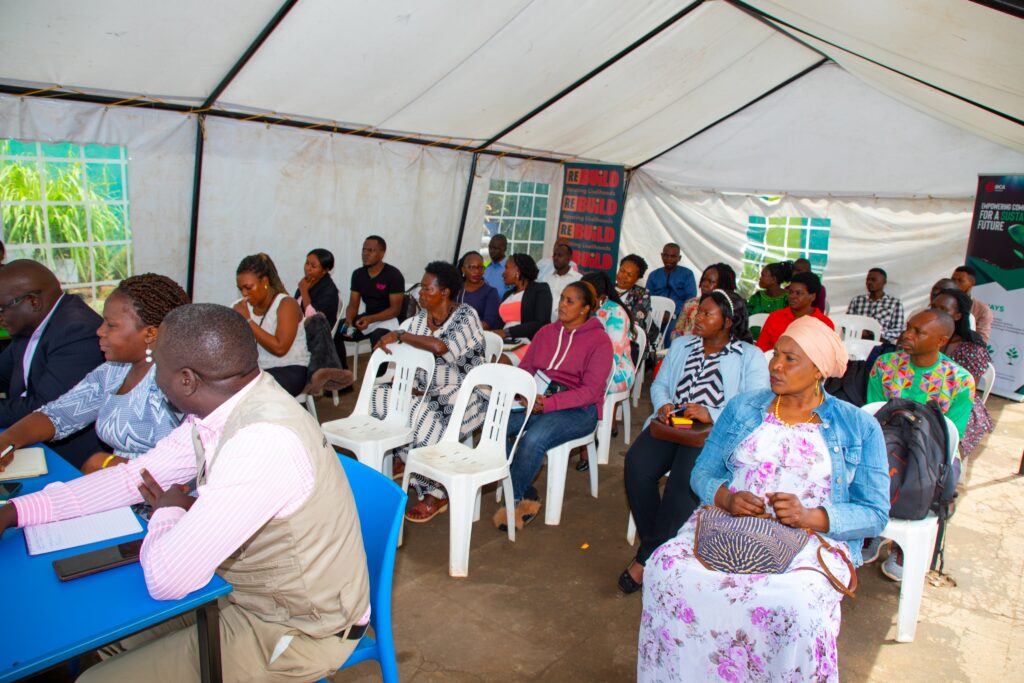
Furthermore, oyster mushroom farming offers numerous environmental benefits. Oyster mushrooms can be cultivated on a variety of substrates, including agricultural waste and by-products such as straw, sawdust, and coffee grounds. This presents an opportunity to repurpose organic waste materials, reduce landfill waste, and mitigate environmental pollution. Additionally, oyster mushroom cultivation requires minimal land and water resources compared to traditional agricultural crops, making it a sustainable and eco-friendly farming practice.
In line with our waste-to-value pathway, RGF will utilize waste mushroom gardens to feed maggots, thereby enhancing the loop of organic waste management. The nutrient-rich waste from urban farming activities will serve as an ideal substrate for maggot cultivation, creating a valuable protein source for livestock feed or further composting. This integrated approach demonstrates our commitment to maximizing resource utilization and promoting circular economy principles.
By specifically promoting oyster mushroom farming, RGF aims to empower communities with access to nutritious food, while also fostering sustainable agricultural practices and environmental stewardship. We are excited about the potential impact of this initiative and remain dedicated to advancing urban farming solutions for resilient and thriving communities.
As we embark on the fourth pathway of sustainable digital skills, Raising Gabdho Foundation (RGF) aims to leverage technology to promote climate resilience and encourage adoption of sustainable practices. Our objective is to create awareness about climate resilience and empower individuals with the digital skills needed to embrace sustainable solutions.
Through digital platforms and educational resources, RGF will disseminate information about climate change, its impacts, and the importance of building resilience in communities. We will highlight the interconnectedness between human activities and environmental sustainability, emphasizing the role that individuals can play in mitigating climate change and adapting to its effects
Furthermore, RGF will provide youth with training and capacity-building programs focused on sustainable digital skills. These programs will equip individuals with the knowledge and expertise to leverage digital tools and technologies in support of environmental conservation, sustainable agriculture, waste management, and renewable energy initiatives. By enhancing digital literacy and promoting the use of technology for sustainability, RGF aims to empower communities to address climate challenges effectively.
RGF will facilitate collaborative projects and initiatives that harness the power of digital innovation to promote climate resilience. This may include the development of mobile applications, online platforms, or digital campaigns aimed at encouraging sustainable practices, fostering community engagement, and facilitating knowledge-sharing among stakeholders.
Through our sustainable digital skills pathway, RGF seeks to inspire positive change, foster innovation, and build resilience in the face of climate change. By harnessing the transformative potential of technology, we aim to create a more sustainable and resilient future for generations to come.
Through careful evaluation and learning experiences, Raising Gabdho Foundation (RGF) has identified key pathways that align with our mission of promoting sustainable development and climate resilience income generating activities for self-reliance. Along this journey, we have gathered valuable insights and made strategic decisions to focus our efforts on pathways that offer the greatest impact and sustainability. We have learned that certain ventures, such as vegetable farming and fish farming at small scale, present challenges in terms of profitability and time investment. Similarly, while solar training for technicians and the production of reusable pads initially seemed promising, practical constraints and market dynamics led us to reassess their viability.
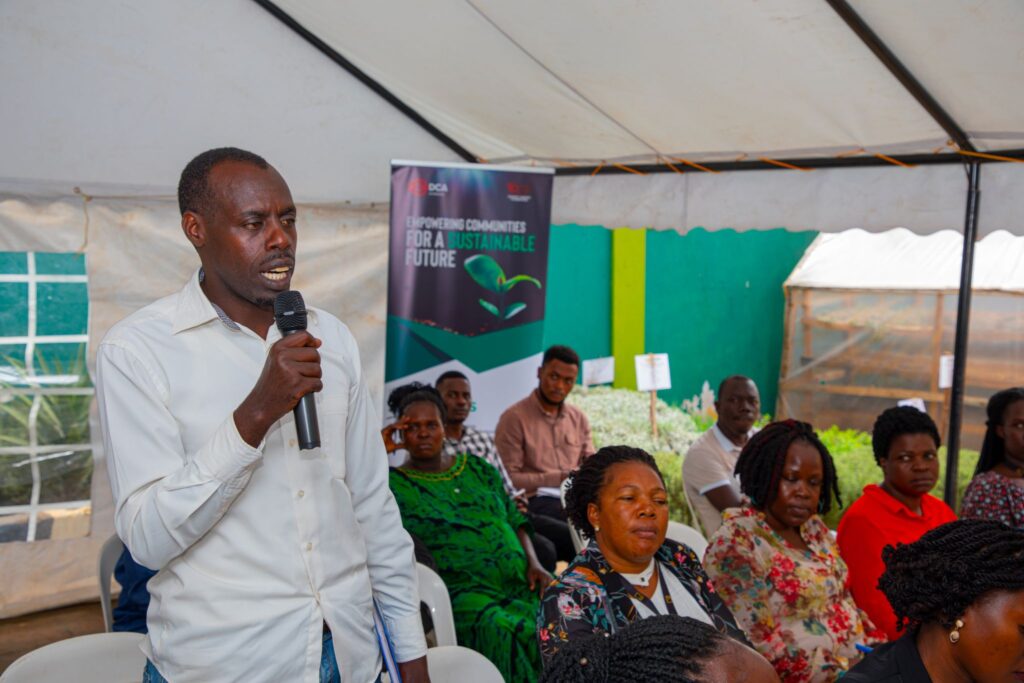
Additionally, ventures like catering and interior design, while lucrative in certain contexts, proved to be less conducive to our long-term goals due to seasonal nature or market saturation. These lessons have guided us to prioritize pathways that offer scalability, sustainability, and tangible benefits for our communities. As we move forward, we remain committed to adaptability and continuous learning, ensuring that our initiatives are both impactful and resilient in the face of evolving challenges.
Registration is currently in progress through community-based organizations (CBOs), refugee leaders, with support from KCCA, and walk-ins are also encouraged. Our goal is to serve a total of 450 individuals, distributed across four pathways. Specifically, we aim to support 100 individuals through renewable energy initiatives, 15 individuals through green digital skills programs, 275 individuals in urban farming for food security, and 60 individuals engaged in waste-to-value projects. Our target distribution emphasizes inclusivity, with 60% of registrations reserved for women and 40% for men. Additionally, we are committed to ensuring that 60% of our beneficiaries are refugees and 40% are Ugandans. By addressing the diverse needs of our community, we are dedicated to fostering sustainable development for all.
Please stay tuned for updates as we work diligently to transform the lives of 450 individuals towards self-reliance through climate action. It’s worth noting that our services are accessible to people across all five divisions of Kampala. Together, we are making strides towards a more sustainable and resilient future for our community

